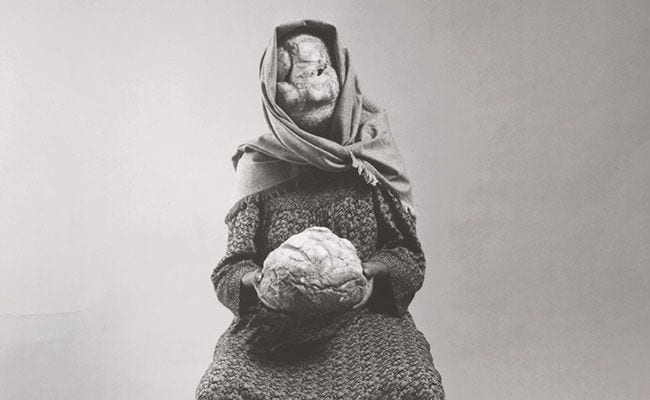
Artist Anna Homler created the character Breadwoman circa 1982 (Or should we say discovered her?) and presents her here to the world with help of fellow musician Steve Moshier on the reissue of a 1985 album that sounds as far out today as it must have back then. Moshier has proven himself a composer adept at creating hypnotic, minimalistic rhythms that are avant garde without being inaccessible and are strange without being foreboding. Homler’s vocals are hypnotic and pure as she sings in a language she created and though it is her own it has a heavy Asian influence that adds to the hypnotic nature of each composition.
The opening “Ee Che” reveals itself over a tuneful and contemplative eight-minute dash, which is heavily reliant on Moshier’s superior percussive figures. Meanwhile, the subsequent “Oo Nu Dah” is a showcase for Homler’s ability to take the most basic elements of sound and make them new from measure to measure, a feat that would be impossible for a lesser talent but seems as natural as some anonymous pop artist oohing and ahhhing to a drum machine. The musical palette deepens from there with jolts of keyboard figures splashing across the spectrum or sometimes coming close to dominating (such as in “Giyah”).
There’s even something approaching a standard tune via the Kate Bush-ish “Yesh’ Te”, but that serves only as a gateway to the album’s closing, sprawling work, “Sirens”, a 12-minute wash of noise that ranges from the meditative to the terrifying and everything beyond, and “Celestial Ash”, an extended meditation on what might come after we’ve shed our mortal coils. It’s also a beautiful encapsulation of everything that this duo does elsewhere on the record which is, namely, attempting to realize wild imaginings and the narrative of this most unique character.
This is fitting, of course, for a character that Homler described thusly: “Breadwoman is a storyteller — she’s so very old that she’s turned into bread. Breadwoman says, “if you don’t try to understand it, you will.” She is the voice, and the voice is cosmic reality’s musicality”. The paradoxical nature of the work is not just refreshing, but also evident upon focused listening and perfect reminder that complex need not be either elusive or complex.
At the same time, this isn’t your college chum’s avant garde/experimental record, one that you’ll listen to for a semester and then ditch when it becomes evident that you don’t/won’t/can’t understand it. Instead, this is a collection that allows you to discover the answers should you want to and rewards the seeking with billowy epiphanies that resonate long after the final notes have disappeared.
The physical album comes with a 20-page booklet with detailed liner notes, photographs and ephemera and to hold it in your hands will surely be as pleasing an experience as running down the hours with this music as your soundtrack.
Homler has resurrected Breadwoman for some 2016 dates that will help celebrate this choice re-release. Let’s hope that those and this help put her back on the map.

